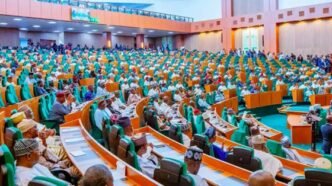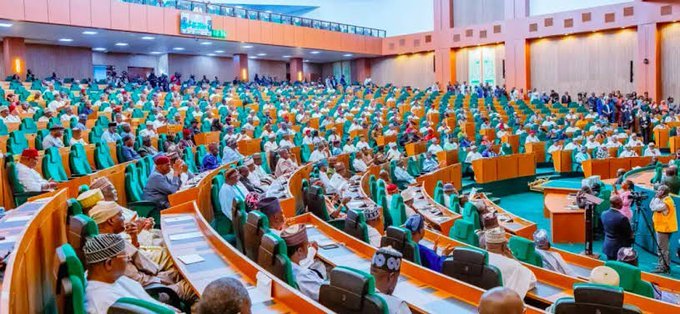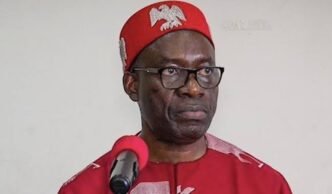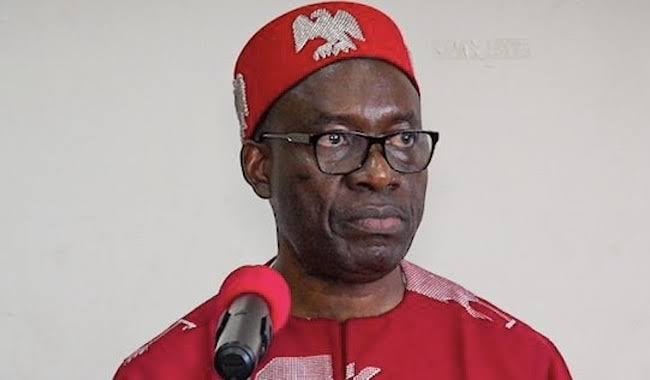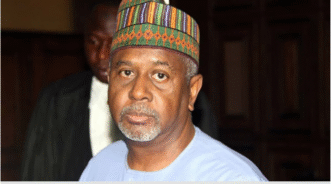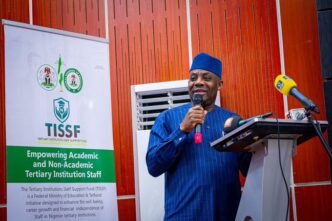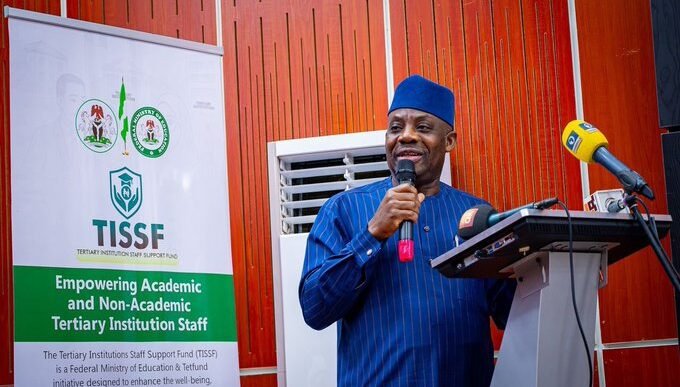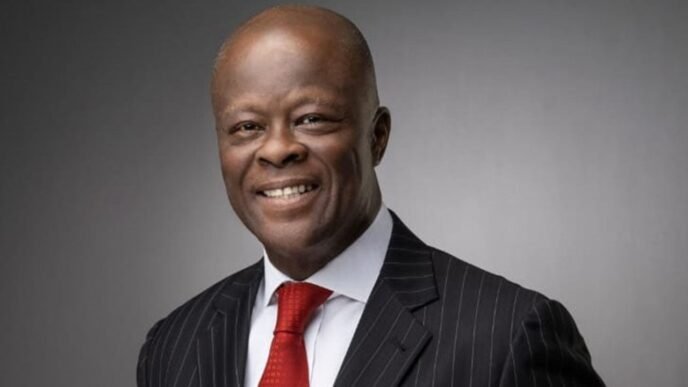Abuja, October 14, 2025 — The House of Representatives has announced plans to intervene in the ongoing industrial dispute between the Federal Government of Nigeria and the Academic Staff Union of Universities (ASUU), following the commencement of a two-week warning strike by the union on Monday.
The lower chamber of the National Assembly said it was deeply concerned about the disruption to academic activities across public universities and pledged to mediate between both parties to ensure a swift resolution to the crisis.
Background: ASUU’s Two-Week Warning Strike
On Monday, October 13, 2025, the Academic Staff Union of Universities (ASUU) officially began a two-week warning strike after the expiration of its 14-day ultimatum to the Federal Government.
The union’s National President, Prof. Chris Piwuna, announced the strike during a press conference in Abuja, stating that the action became necessary following the government’s failure to address long-standing issues affecting the university system.
According to ASUU, its demands include:
- Full implementation of the 2009 ASUU-FG Agreement,
- Payment of Earned Academic Allowances (EAA),
- Release of revitalisation funds for universities,
- Removal of university staff from the Integrated Personnel and Payroll Information System (IPPIS), and
- Improved welfare for lecturers across public universities.
Piwuna explained that the union had exhausted all dialogue channels before resorting to industrial action. He warned that if the government failed to meet the union’s demands within the warning period, the lecturers might embark on a full-blown, indefinite strike.
House of Representatives Steps In
Reacting to the development, the House of Representatives on Tuesday said it would not allow the education sector to be crippled again by avoidable industrial action.
The Speaker of the House of Representatives, Rt. Hon. Abbas Tajudeen, announced that the House had set up a special mediation committee to engage with both the Federal Government and ASUU in a bid to end the strike before it escalates.
In a statement issued in Abuja, Speaker Abbas expressed concern over the recurring breakdown of dialogue between the government and university lecturers, stressing that the National Assembly was ready to facilitate constructive engagement to avert a total collapse of the academic calendar.
“The House of Representatives is deeply concerned about the disruption of academic activities in our public universities. Education is the backbone of our national development, and we cannot afford another prolonged closure of our institutions,” Abbas said.
“We will immediately invite the leadership of ASUU and officials from the Federal Ministry of Education, the Ministry of Labour, and other relevant agencies to a roundtable discussion. Our goal is to mediate and ensure that this matter is resolved amicably and sustainably.”
The Speaker assured students, parents, and stakeholders that the House would do everything within its legislative power to restore normalcy to the education sector.
A History of Strikes and Broken Promises
The latest strike marks yet another chapter in ASUU’s long history of industrial actions in Nigeria. Over the past two decades, the union has embarked on multiple strikes over unfulfilled agreements with the Federal Government.
In 2020, Nigerian universities were shut for nine months — the longest in the country’s history — following disputes over the implementation of the 2009 agreement and the adoption of the IPPIS platform for salary payments.
In 2022, another eight-month strike paralyzed the academic system before it was called off after a series of interventions by the National Assembly and a court order.
Despite the suspension of those strikes, most of ASUU’s demands have remained unresolved, leading to a cycle of negotiations, promises, and fresh industrial actions.
Key Issues Behind the Current Dispute
The current warning strike, according to ASUU, is driven by a renewed call for the Federal Government to honor its commitments to the union and to address systemic challenges facing Nigerian universities.
1. Revitalisation of Public Universities
ASUU is demanding that the government release the remaining tranche of the revitalisation fund to upgrade facilities in federal and state universities. The union argues that poor infrastructure, overcrowded lecture halls, and inadequate research funding have eroded the quality of university education.
2. Payment of Earned Academic Allowances
The lecturers are also agitating for the payment of Earned Academic Allowances (EAA), which cover excess workload, research, and supervision duties. The union says many universities have not received their full entitlements despite repeated assurances by the government.
3. IPPIS Controversy
ASUU continues to reject the use of the Integrated Personnel and Payroll Information System (IPPIS) for salary payments, describing it as inconsistent with university autonomy. The union has developed an alternative platform, UTAS (University Transparency and Accountability Solution), which it claims better suits the university system’s peculiarities.
4. Unfulfilled Agreements
The union insists that the Federal Government has failed to fully implement several agreements signed as far back as 2009, particularly those relating to university funding, academic staff conditions, and governance structures.
House Committee to Hold Emergency Meeting
According to reliable sources within the National Assembly, the House Committee on Tertiary Education and Services, chaired by Hon. Miriam Onuoha, is expected to hold an emergency meeting with the leadership of ASUU and government officials within the week.
The committee is also expected to receive briefings from the Minister of Education, Dr. Tahir Mamman, and the Minister of Labour and Employment, Nkeiruka Onyejeocha, who have been leading the government’s negotiations with the union.
Lawmakers are hopeful that a proactive approach this time could prevent a repeat of the prolonged shutdowns that have historically disrupted the academic calendar.
Students and Parents React
Across the country, students and parents have expressed mixed feelings over ASUU’s strike. Many undergraduates have voiced frustration, saying repeated disruptions to their studies have prolonged their time in school and increased financial burdens.
A 300-level student of the University of Ibadan, Chinedu Okafor, said:
“We are tired of this constant back and forth between ASUU and the government. Every time we settle down for exams, another strike begins. It’s frustrating and disheartening.”
Parents’ associations have also called for dialogue and compromise, emphasizing the need for both parties to prioritize the future of Nigerian students over political and bureaucratic disagreements.
What the Federal Government Is Saying
The Federal Ministry of Education has maintained that it is committed to resolving the issues raised by ASUU. Officials said the government was reviewing the union’s demands and would soon invite its leaders to a new round of talks.
A senior official in the ministry, who spoke on condition of anonymity, said:
“The government recognizes the importance of ASUU’s concerns. The economic situation is challenging, but we are exploring feasible ways to address the outstanding issues without jeopardizing fiscal stability.”
Meanwhile, the Minister of Labour and Employment, Nkeiruka Onyejeocha, has appealed to ASUU to reconsider its strike and return to the classroom while negotiations continue.
“We urge our lecturers to suspend their strike in the interest of our students and the nation. The government remains open to dialogue and is committed to improving conditions in our universities,” she said.
Possible Path to Resolution
With the intervention of the House of Representatives, expectations are high that the latest crisis can be resolved before the warning strike expires.
Speaker Abbas Tajudeen has directed the House leadership to prepare a detailed report on all pending ASUU agreements since 2009 and propose legislative actions to ensure accountability in future negotiations.
Analysts say the National Assembly’s intervention could provide a neutral platform for dialogue, given its history of successful mediation between ASUU and the government in past disputes.
However, some education experts caution that without concrete implementation mechanisms, even the best mediation efforts may not yield lasting results.
“Every strike since 2009 has ended with promises and committees,” said education analyst Dr. Adeola Fashina. “Unless the government commits to a binding timeline and transparent disbursement process, we may see a repeat of the same pattern.”
Conclusion
The decision of the House of Representatives to intervene in the ongoing ASUU-Federal Government dispute marks a critical moment for Nigeria’s education sector. As the two-week warning strike continues, the eyes of millions of students, parents, and educators are now on Abuja — waiting to see whether dialogue, this time, will bring a lasting solution.
For now, classrooms across public universities remain empty, but there is renewed hope that the lawmakers’ intervention could finally bridge the long-standing divide between lecturers and the government — and restore stability to Nigeria’s tertiary education system.

